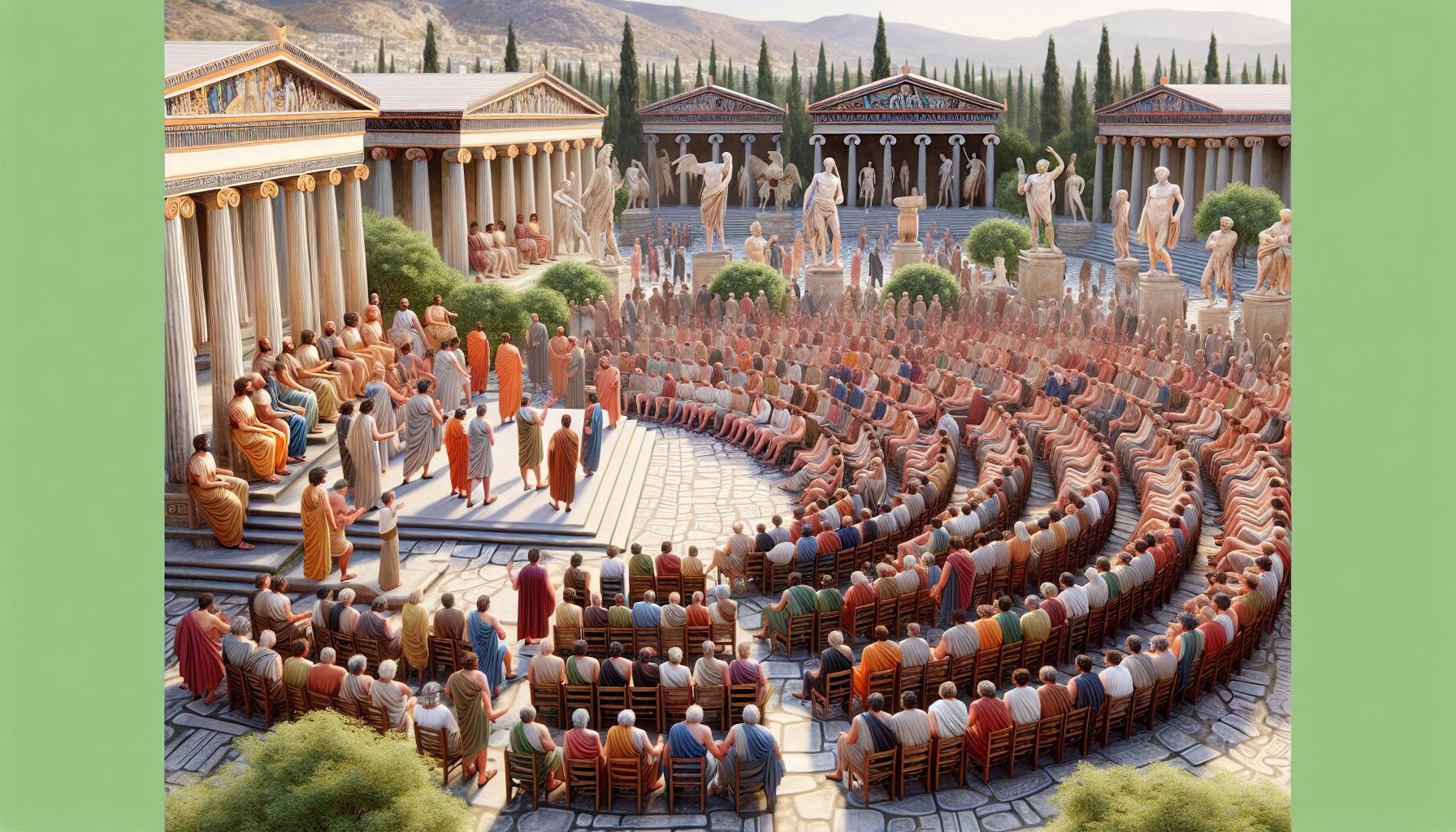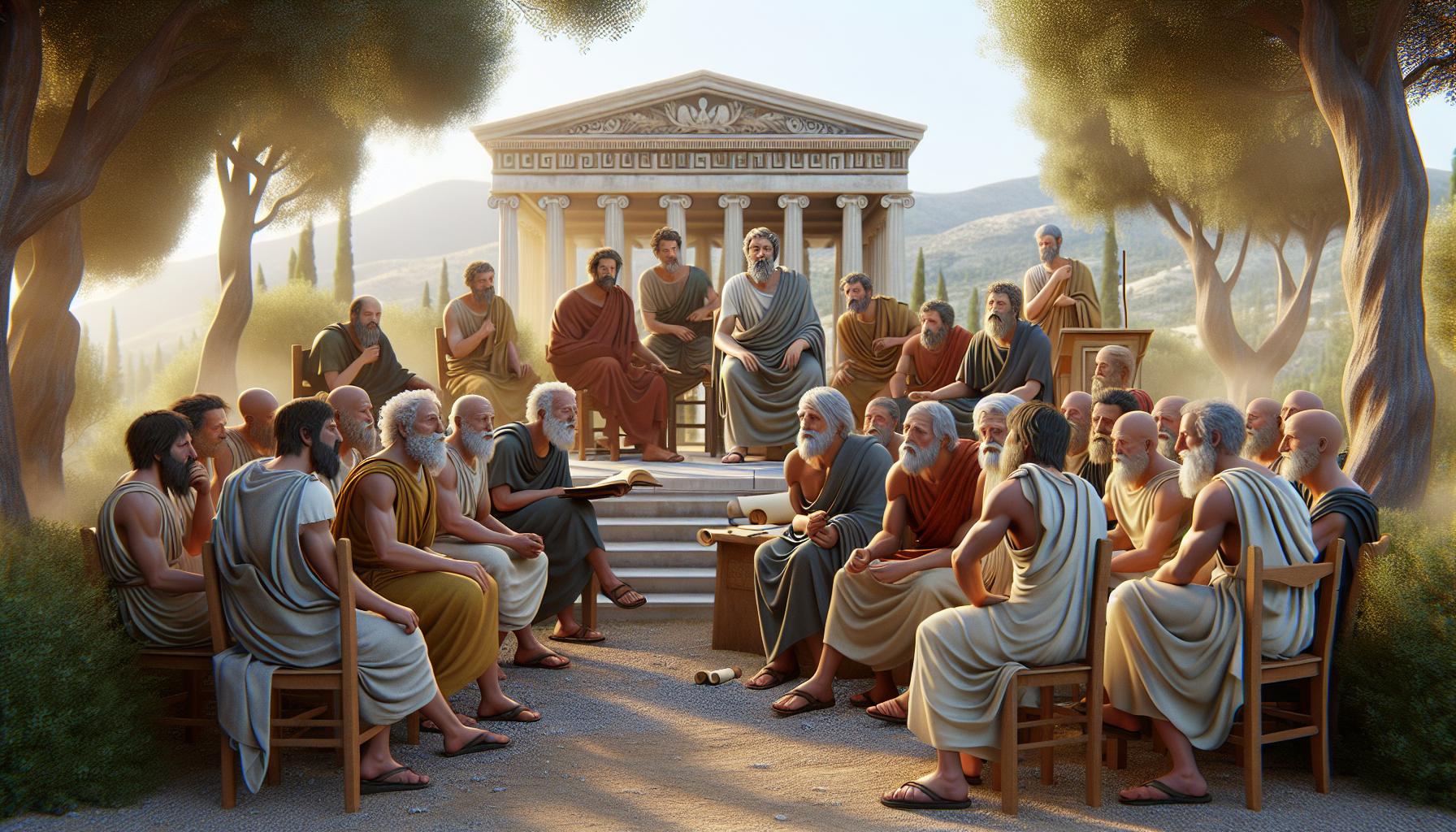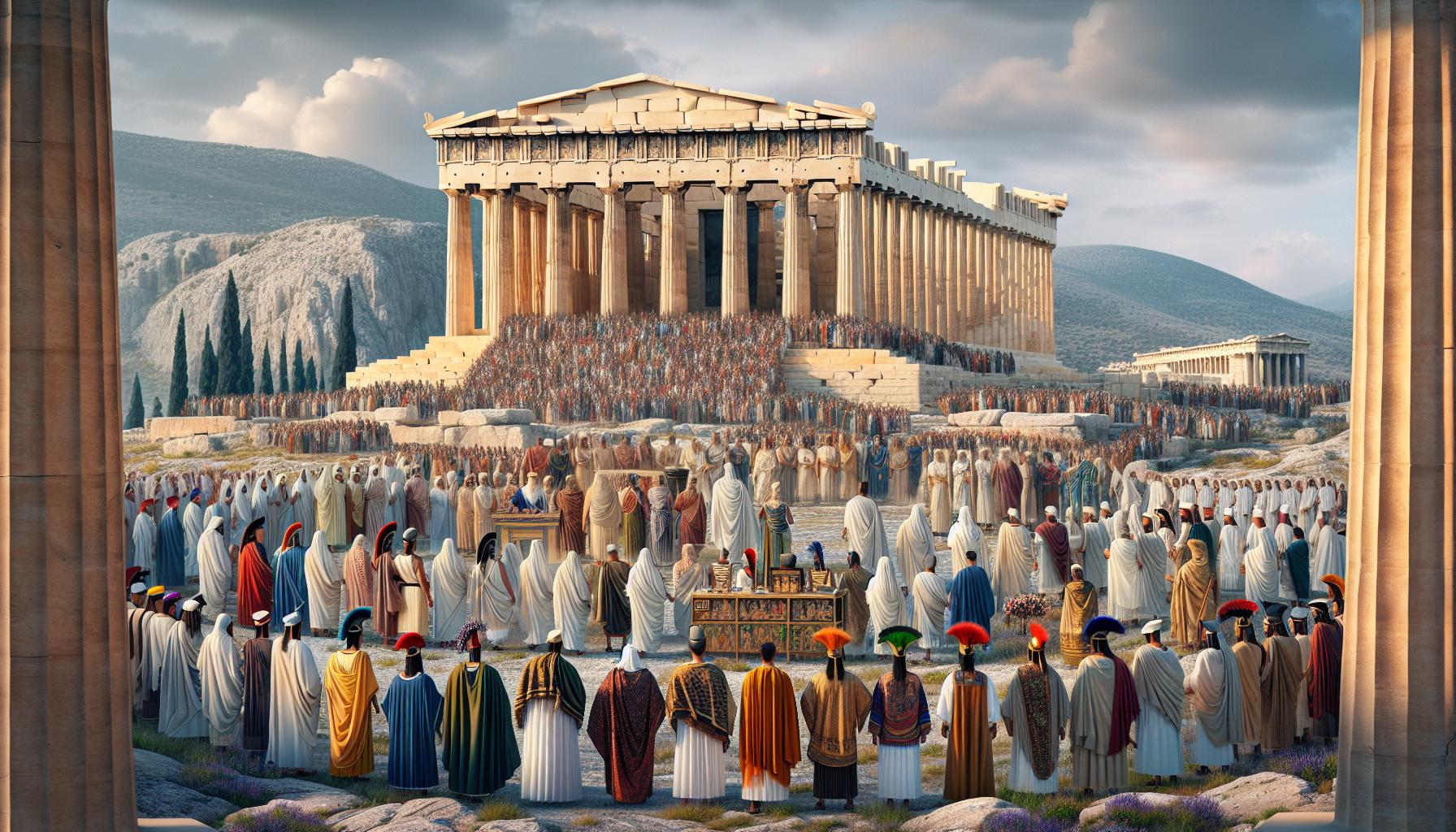Athens stands as a beacon of ancient civilization, where the foundations of government, education, religion, and culture were laid. I’ve always been fascinated by how this city-state prioritized these elements, shaping not just its own society but influencing countless generations that followed. The democratic ideals born in Athens sparked a revolution in governance that still resonates today.
In Athens, education was revered as a pathway to personal and civic excellence. It wasn’t just about knowledge; it was about nurturing citizens who could actively participate in their democracy. Religion and culture intertwined seamlessly, reflecting the values and beliefs of the people. By exploring these facets, we can truly appreciate why Athens remains a pivotal reference point in discussions about civilization and progress.
Key Takeaways
Foundation of Democracy: Athens pioneered democratic governance, allowing citizens to directly participate in politics, shaping modern democratic principles.
Significance of Education: Athenian education emphasized personal development and civic responsibility, with a focus on philosophy, rhetoric, and critical thinking, crucial for political engagement.
Role of Religion: Religion was integral to daily life in Athens, influencing cultural practices and social norms, with festivals uniting citizens around shared beliefs.
Cultural Flourishing: Athens was a cultural epicenter, known for its contributions to literature, theater, and art, that profoundly impacted Western civilization.
Interconnectedness of Society: The emphasis on government, education, religion, and culture in Athens created an interwoven society where civic engagement, intellectual inquiry, and cultural expression thrived.
Athens Placed The Greatest Emphasis on Government, Education, Religion, Culture
Athens stands as a pivotal center emphasizing four main pillars: government, education, religion, and culture. This focus shaped its identity, influencing various aspects of life and governance.
Government
Athens pioneered democracy, allowing citizens to engage directly in political matters. Assembly meetings brought citizens together to discuss laws and vote on important issues, establishing a framework for civic involvement that continues to inspire modern democratic systems.
Education
Education in Athens emphasized personal development and civic responsibility. Schools focused on rhetoric, philosophy, and physical training. Noteworthy philosophers, such as Socrates and Plato, advanced ideas on ethics and governance, shaping intellectual thought.
Religion
Religion played a crucial role in daily life in Athens. The city-state celebrated numerous festivals honoring gods and goddesses, like Athena and Zeus. Temples served as cultural hubs, reinforcing societal values and fostering community interactions.
Culture
Athens flourished culturally, producing remarkable achievements in art, theater, and literature. Playwrights such as Aeschylus, Sophocles, and Euripides crafted works that explored human experiences, while sculptors created enduring masterpieces. These contributions secured Athens’ reputation as a cultural epicenter.
Athens’ emphasis on government, education, religion, and culture laid the groundwork for future civilizations, cementing its legacy as a beacon of progress and innovation.
Government in Athens

Athens developed a pioneering system of governance that laid the foundation for modern democratic principles. The emphasis on civic involvement and structured political practices significantly influenced society.
Structure of Government
The Athenian government featured a direct democracy where citizens participated actively in decision-making. Citizens, defined as free men born of Athenian parents, gathered in the Assembly (Ekklesia) to debate and vote on major issues. The Council of Five Hundred (Boule) prepared the agenda for these meetings, representing diverse segments of the population. Various officials were chosen through a system known as sortition, which ensured that positions like generals and magistrates reflected the general populace rather than elites. This structure encouraged accountability and transparency, enabling citizens to engage in shaping laws and policies directly.
Impact on Society
The governmental framework in Athens fostered a strong sense of civic duty among its citizens. With political participation viewed as essential, Athenians often attended Assembly meetings, contributing to discussions on legislative proposals and public policy. The emphasis on individual rights and collective responsibility cultivated an environment where diverse ideas and opinions flourished. Athenian democracy also inspired various civic festivals that reinforced community bonds, including the City Dionysia and Panathenaic Festival. These events celebrated not just governance but also culture, religion, and public life, reflecting the interconnectedness of politics and Athenian identity.
Education in Athens

Education in Athens played a vital role in shaping both individual citizens and society. The focus was on developing critical thinking, civic responsibility, and practical skills, ensuring citizens could contribute effectively to the state.
Philosophical Influences
Philosophy significantly influenced Athenian education. Thinkers like Socrates, Plato, and Aristotle shaped educational practices, emphasizing the importance of logical reasoning and ethics. Socratic questioning encouraged students to analyze their beliefs, fostering intellectual independence. Plato’s Academy and Aristotle’s Lyceum established formal institutions for higher learning, prioritizing subjects such as philosophy, mathematics, and natural sciences. These philosophical foundations allowed students to engage actively in political discourse and develop informed viewpoints, essential for participation in Athenian democracy.
Comparison with Other City-States
Athenian education contrasted sharply with that of other Greek city-states. Sparta focused on military training, prioritizing discipline and physical prowess over intellectual pursuits. In contrast, Athens promoted a well-rounded education encompassing arts, sciences, and civic engagement. While Spartan youth underwent rigorous physical conditioning, Athenian boys participated in debates and attended lectures, cultivating a different skill set. This distinction in educational focus influenced the governance and cultural life of each city-state, with Athens fostering democratic ideals through its educational practices.
Religion in Athens

Religion played a central role in Athenian life, influencing culture, politics, and daily routines. The Athenian pantheon consisted of gods and goddesses who represented various aspects of human experience, providing a framework for worship and civic identity.
Major Deities and Cult Practices
Athens primarily revered major deities, including Athena, the city’s patron goddess, and Zeus, the king of the gods. Festivals honoring these deities were essential for community cohesion and religious observance. The Panathenaea, dedicated to Athena, featured athletic competitions, musical contests, and a grand procession, showcasing civic pride. The Eleusinian Mysteries, related to Demeter and Persephone, emphasized agricultural fertility and the afterlife, drawing participants from across Greece. These rituals fostered a sense of belonging and cultural continuity, uniting citizens around shared beliefs and practices.
Role in Daily Life
Religion permeated daily life in Athens, guiding moral conduct and social norms. Households maintained altars for domestic gods, such as Hestia, ensuring safety and prosperity. Civic rituals, including sacrifices and prayers, took place before public gatherings, linking religious observance with civic duty. Temples, like the Parthenon, served not only as places of worship but also as symbols of Athenian power. Daily life revolved around religious festivals, reinforcing community bonds and defining the societal calendar. With religious beliefs intertwined with politics and education, Athenian identity fundamentally depended on these spiritual practices and beliefs.
Culture in Athens
Culture in Athens thrived through its rich contributions to the arts, literature, and vibrant public celebrations. These aspects not only reflected Athenian values but also established a legacy that influenced Western civilization.
The Arts and Literature
The arts and literature in Athens represented a pinnacle of ancient creativity. Notable playwrights, such as Aeschylus, Sophocles, and Euripides, shaped the foundation of Western theater with their tragic plays. Each work explored complex themes of morality, fate, and human nature, captivating audiences during festivals.
Athens also produced remarkable sculptors like Phidias, whose works, including the statue of Athena in the Parthenon, exemplified ideal beauty and harmony. The architectural landscape featured significant structures, combining functionality with artistic expression. Public spaces, like the Agora and theaters, allowed citizens to engage with art, reinforcing community ties and shared identity.
Moreover, philosophy flourished in Athens, with key figures like Socrates, Plato, and Aristotle addressing fundamental questions of existence and ethics. Their written works laid the groundwork for disciplines such as political theory, ethics, and metaphysics, influencing generations of thinkers.
Festivals and Celebrations
Festivals and celebrations in Athens played a crucial role in cultural life. Events like the City Dionysia honored Dionysus and featured dramatic competitions that showcased playwrights’ talents. These festivals brought communities together, encouraging participation from citizens and fostering a sense of unity.
The Panathenaic Festival, dedicated to Athena, included athletic competitions, musical contests, and processions, culminating in the presentation of a new robe to the goddess. These celebrations not only highlighted Athenian pride but also reinforced civic identity through shared rituals.
Religious festivals intertwined with civic duties, linking worship with public participation. They created opportunities for citizens to engage in both religious and social practices, enriching Athens’ cultural fabric and ensuring that traditions endured through generations.
Pioneers in Philosophy And The Arts.
Athens truly set the standard for what it means to prioritize government, education, religion, and culture. Its innovative democratic practices not only shaped civic engagement but also fostered a sense of responsibility among citizens. The emphasis on education cultivated critical thinkers who became pioneers in philosophy and the arts.
Religion intertwined seamlessly with daily life, reinforcing community values and identity. The cultural achievements of Athens continue to inspire and resonate throughout history. The legacy of this remarkable city serves as a testament to the enduring impact of its foundational principles on modern society.